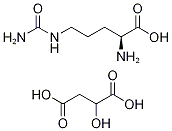Number of Product Found:
67
Product
Erythritol
Erythritol is a sugar alcohol that has gained popularity as a low-calorie sweetener and substitute for sugar. It is created through the fermentation of glucose by certain yeasts. Despite being almost calorie-free and having a minimal impact on blood sugar levels, erythritol has a sweetness similar to sugar.
Isomaltose
Isomaltose, a disaccharide made of two glucose molecules linked by an α-(1,6)-glycosidic bond, offers a distinct sweetness to the food and beverage industry. Occurring naturally and also manufactured enzymatically, Isomaltose's sweet taste makes it an attractive option to replace sucrose in various products.
Monoethanolamine(MEA)
Monoethanolamine (MEA), also known as ethanolamine, is a versatile compound utilized across multiple industries due to its combination of amine and alcohol properties. It is commonly found in the production of detergents, cosmetics, and personal care products as it acts as a surfactant and emulsifying agent.
L-Tryptophan
Food-grade L-tryptophan, an essential amino acid, is renowned for its role as a precursor to serotonin, a neurotransmitter vital for mood and sleep regulation. Given that the body cannot produce L-tryptophan internally, it must be obtained through the diet, underscoring its significance in various food and dietary supplement formulations.
Iron(III) chloride
Iron(III) chloride, also referred to as ferric chloride, is a chemical compound identified by its molecular formula FeCl₃. This dark brownish-orange solid is recognized for its distinctive hydrochloric acid-like smell and high solubility in water. Featuring a versatile nature, iron(III) chloride is utilized across various industries.
Trehalose
Trehalose is a naturally occurring disaccharide comprised of two glucose molecules linked together. It is commonly present in various organisms such as bacteria, yeast, fungi, and select plants, and has attracted attention for its distinctive qualities and roles in the food and pharmaceutical sectors.
Inositol
Food-grade inositol is a carbohydrate and vital nutrient often considered as part of the B-vitamin group, though the body can create it naturally. Known for its significant role in various body functions like cell membrane structure, signal transmission, and lipid metabolism, inositol is present in many food sources including fruits, beans, and grains.











